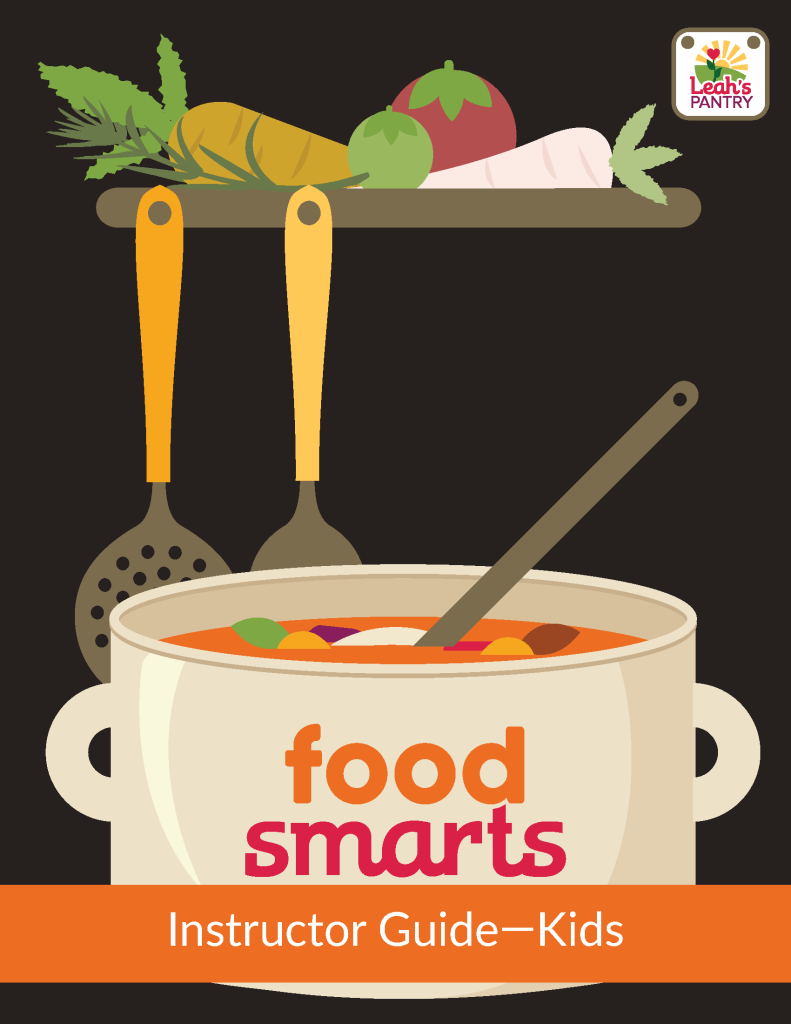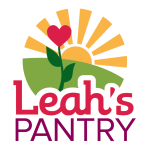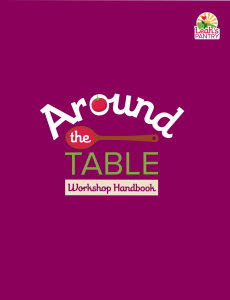
Food Smarts Kids Instructor Guide
$35.00
This Instructor Guide provides instructions and lesson plans to implement Food Smarts Workshops for Kids. The curriculum is the companion to the Kids Food Smarts Workbook. The recommended Food Smarts workshop length is a 6 week, 90-minute series but lesson plans are offered for shorter lengths. Ideally, a recipe is prepared during each workshop. Lesson plans and activities are designed to be flexible and modifiable for ages 5-18.
Food Smarts is an interactive, learner-centered curriculum for nutrition educators bringing programs to low-income audiences throughout the United States. Included Evaluation Tools are based on the FFY2017 USDA Evaluation Framework. We encourage educators to pair Food Smarts with our online recipe website, EatFresh.org. The curriculum is intentionally flexible to ensure educators retain control over the type of activity used to meet the stated outcomes. For example, a large, outgoing group might benefit more from a decentralized activity where learning is happening in pairs or trios whereas a smaller group might glean more from a facilitated group discussion. Further, the same activity can be used to achieve different outcomes. Successful Food Smarts facilitators focus primarily on participant engagement and confidence building to put healthy behaviors into practice.
Food Smarts has been used extensively in SNAP-Ed (USDA-funded) programs, as well as in a wide variety of settings including housing communities, shelters, medical clinics, family resource centers, and food distribution sites. Lesson plans of various lengths have been used and evaluated over the years, demonstrating the ability of Food Smarts to meet the programming needs of a wide variety of situations. More specifics on curriculum modification can be found on pages 18-20.
Food Smarts evaluations consistently show statistically significant changes in consumption of fruits and vegetables as well as sugary beverages. For more information about evaluation methods and indicators, please contact Leah’s Pantry.
This curriculum has grown and developed since 2006, when the first workshop was held at a transitional housing shelter in San Francisco. In 2021, Food Smarts was updated to align with trauma-informed approaches to nutrition education.
The curriculum is intentionally flexible; care is taken to ensure educators retain control over the type of activity used to meet the stated outcomes. For example, a large, outgoing group might benefit more from a decentralized activity where learning is happening in pairs or trios whereas a smaller group might glean more from a facilitated group discussion. Further, the same activity can be used to achieve different outcomes. Successful Food Smarts facilitators focus primarily on participant engagement and build confidence and intention to put healthy behaviors into practice.




